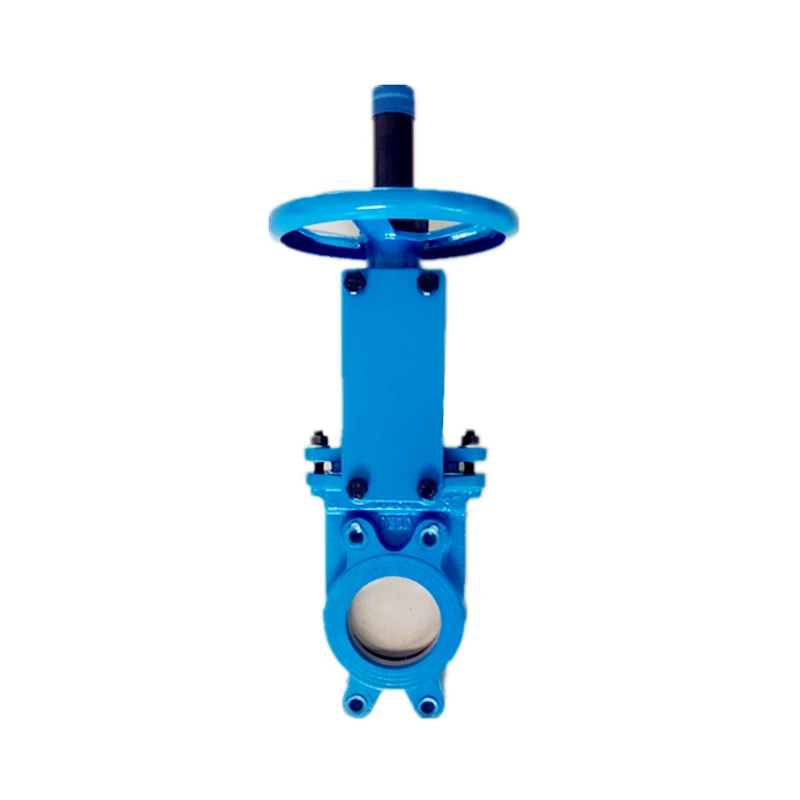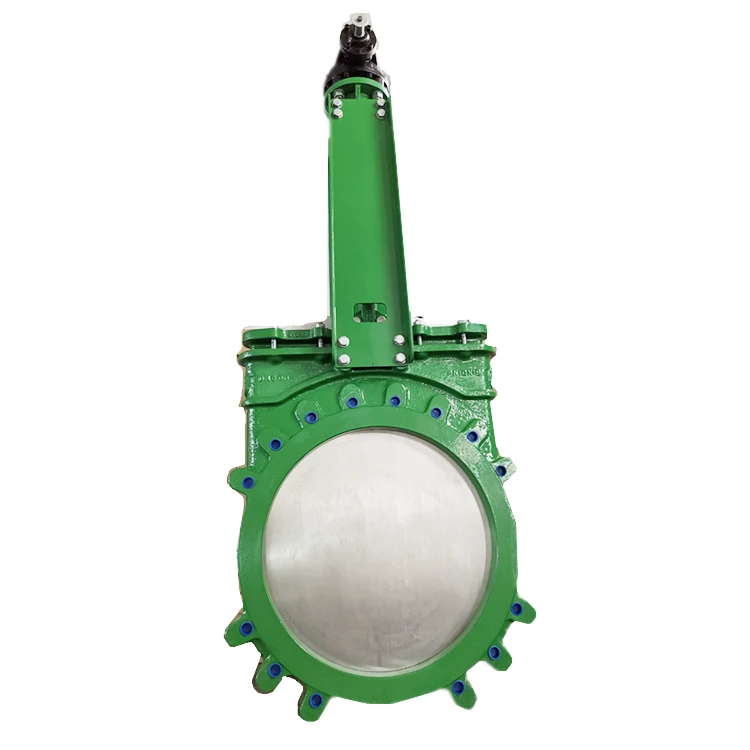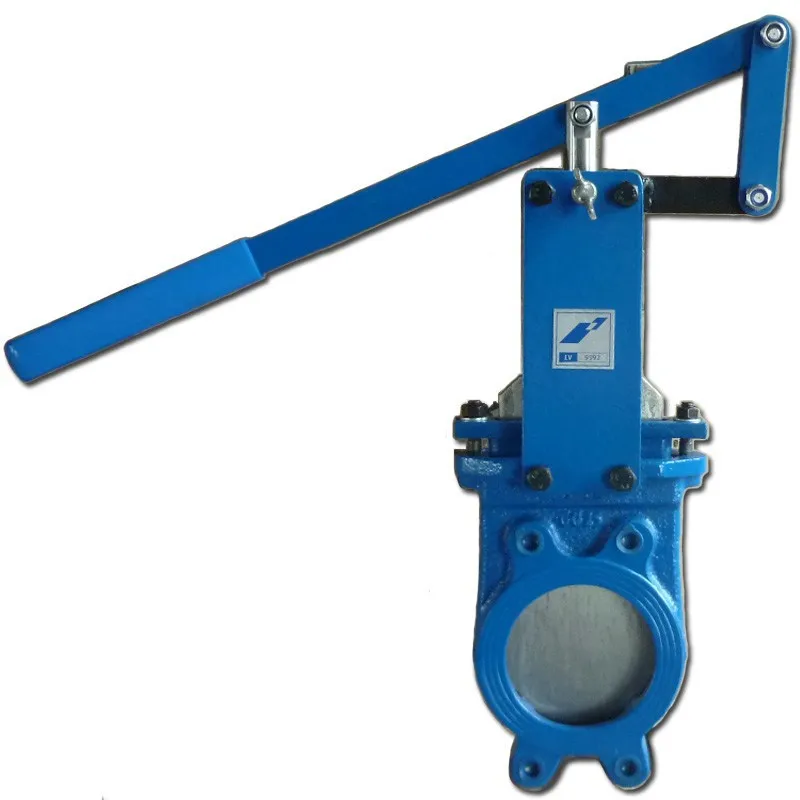Understanding Through Conduit and Other Types of Knife Gate Valves
Key Takeaways
Knife gate valves serve critical functions in various industries, specifically in applications that require the control of flow in solid-liquid mixtures. Through conduit knife gate valves are distinct in their design; they allow for a straight-flow path that minimizes turbulence and facilitates easy handling of viscous fluids or slurries. This characteristic enhances operational efficiency and extends the life of the valve by reducing wear.
Townley knife gate valves are engineered for tough environments, providing robust performance and exceptional sealing capabilities. These valves are often used in waste treatment facilities, mining operations, and other industrial applications where reliable shut-off is crucial. Their designs focus on resisting corrosion and erosion caused by abrasive materials.
The Trueline knife gate valve boasts a unique design that permits maintenance while minimizing downtime. It's typically favored in situations where space is limited, or frequent maintenance is necessary due to its accessible components. The efficient sealing mechanism allows for secure closure under pressure, making it suitable for a variety of pressure conditions.
The Tyco knife gate valve, recognized for its versatility, adapts easily to various configurations and installations. Its ability to handle both liquid and solid flow applications makes it valuable across multiple sectors. Tyco’s design emphasizes longevity while maintaining cost-effectiveness through infrequent maintenance requirements.
Understanding the differences among these types of knife gate valves is essential for selecting the appropriate product for specific operational needs. The unique designs and functionalities cater to varying challenges faced within different industrial environments, influencing not only performance but also overall system reliability and efficiency.
Understanding Through Conduit Knife Gate Valves: Design and Functionality
Through conduit knife gate valves are engineered with a specific design aimed at providing efficient flow control in various industrial applications. These valves feature a blade-like disc that slides within the valve body, effectively cutting through the medium when activated. This design minimizes turbulence and promotes an uninterrupted flow path, making it suitable for handling viscous fluids, slurries, or even solids. The unique construction allows for complete isolation of the downstream system when closed, reducing the risk of contamination and maintaining system integrity.
The design incorporates flush-mounted ports, enabling easy cleaning and maintenance. These valves can handle significant pressure drops while maintaining a reliable seal due to their robust build. Typically crafted from durable materials such as stainless steel or cast iron, they are suited for harsh environments. Additionally, the lack of dead space in through conduit knife gate valves ensures effective drainage and enhances their operational reliability.
Understanding these design features and functional capabilities is crucial for ensuring that the right valve is selected for specific applications. By leveraging their distinctive attributes, industries can ensure enhanced efficiency and reduce operational risks associated with fluid transport systems.
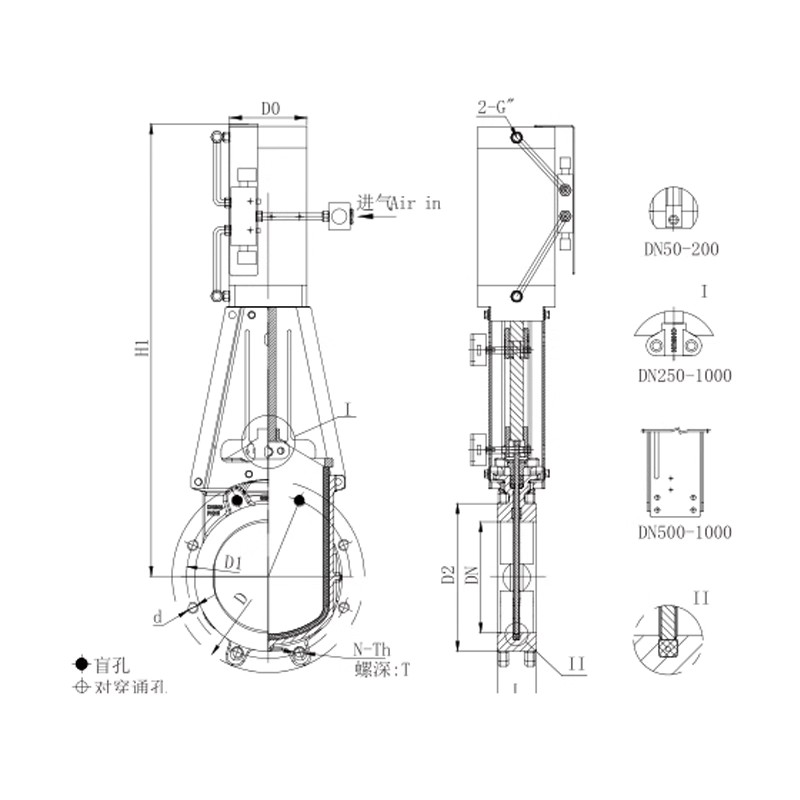
Comparative Analysis of Townley, Trueline, and Tyco Knife Gate Valves
Townley, Trueline, and Tyco are leaders in the manufacturing of knife gate valves, each offering unique designs suited for various applications. The Townley knife gate valve, known for its robust construction, is often favored in demanding industrial environments. Its reliable sealing capabilities are pivotal for handling slurries and slurry-like substances that might otherwise damage conventional valves.
Trueline knife gate valves provide versatility and ease of maintenance, featuring a clean-out port that simplifies servicing without dismantling the valve from its pipeline. This characteristic is particularly beneficial in municipal water treatment facilities where sediment build-up can occur. The Trueline valve's lightweight design facilitates installation even in tight spaces, appealing to operations seeking efficiency.
Tyco knife gate valves are designed with a focus on durability and dependability. Featuring advanced materials that withstand severe conditions such as high temperature and abrasive materials, the Tyco design emphasizes longevity. These valves conform to stringent industry standards, ensuring they maintain performance over time even when handling challenging media.
When comparing these three brands, consideration should be given to the specific application requirements—such as media type, pressure conditions, and maintenance capabilities. Each valve type has distinct advantages that cater to unique operational needs. Users frequently choose based on their operational environment: Townley's strength in industrial applications, Trueline’s ease of serviceability in municipal settings, or Tyco’s resilience in harsh conditions.
"Selecting the right knife gate valve entails understanding your operational parameters."
Applications and Advantages of Different Types of Knife Gate Valves
Knife gate valves serve a vital function in various industries, particularly when isolating or regulating flow in systems involving slurries, wastewater, and other challenging media. The through conduit knife gate valve is renowned for its ability to minimize turbulence and provide a full flow area, making it highly effective in applications where solids may block conventional valves. Industries such as pulp and paper benefitting from this valve's unique design experience fewer maintenance disruptions.
Townley knife gate valves are engineered with robust construction, providing excellent sealing capabilities to manage high-pressure scenarios. Their use is widespread in mining operations, where the ability to handle abrasive materials without damage is critical. The Trueline knife gate valve, with its user-friendly features, is favored in water treatment facilities. Its lightweight design allows easy handling while still ensuring reliable shut-off performance under various pressure conditions.
Tyco knife gate valves, known for their rugged design and compatibility with multiple types of pipework systems, excel within oil and gas applications due to their resilience against harsh environments. The versatility across different types of knife gate valves facilitates their integration into existing setups without significant alterations.
The advantages of employing these specialized knife gate valves are numerous: they provide reliable isolation under fluctuating conditions while ensuring minimal product loss during operation. Their design contributes not only to operational efficiency but also to enhanced safety standards by allowing operators easy access for maintenance or emergencies.
Type of Knife Gate Valve | Key Feature | Ideal Application |
|---|---|---|
Through Conduit | Full flow area | Slurries, wastewater |
Townley | Robust sealing | Mining |
Trueline | Lightweight for easy handling | Water treatment |
Tyco | Rugged design | Oil and gas |
In conclusion, understanding the specific applications and benefits of each type aids operators in selecting the most suitable valve for their needs. A well-chosen knife gate valve enhances operational reliability while ensuring effective management of fluids across diverse industrial settings.
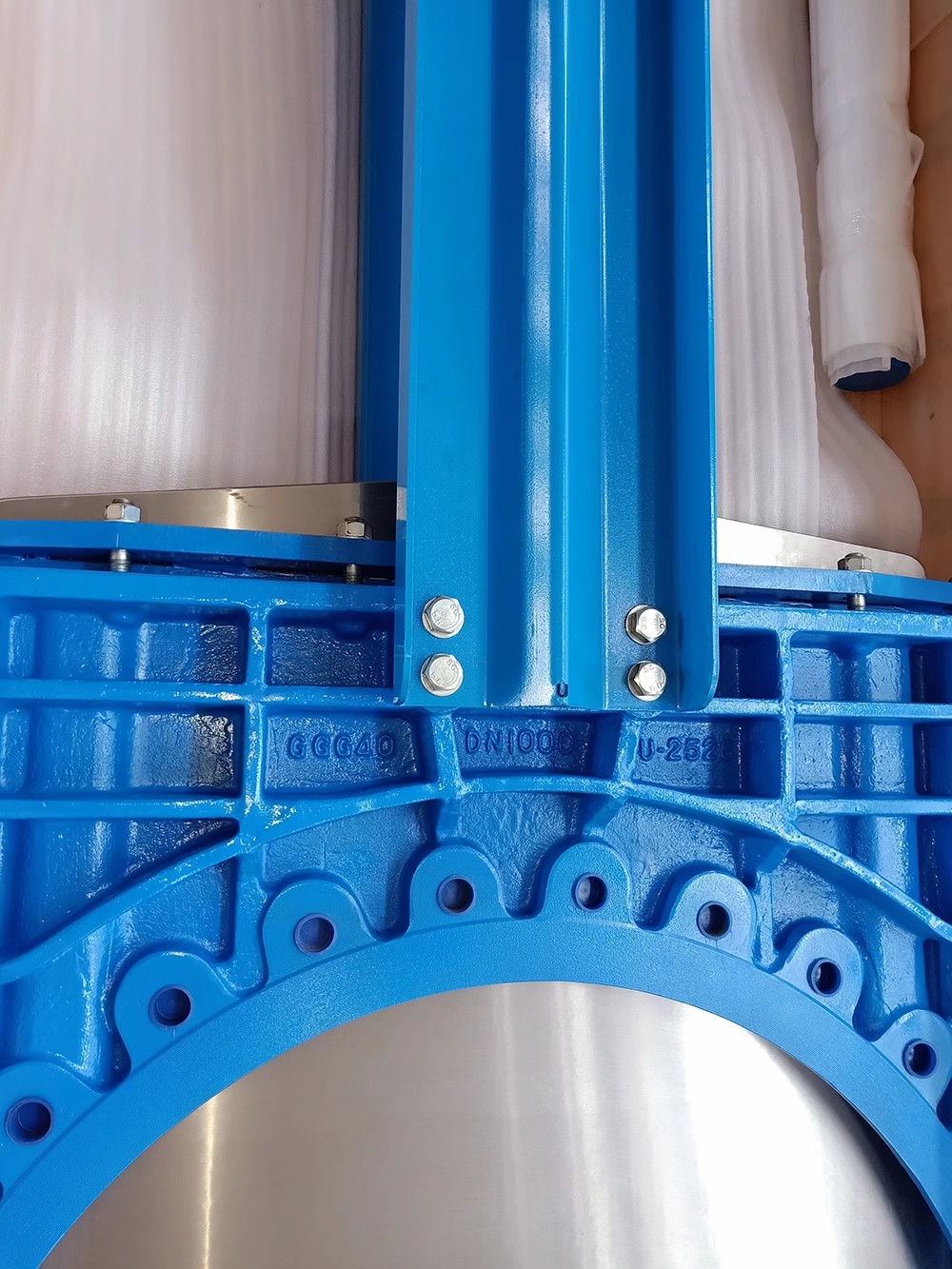
Key Considerations in Selecting the Right Knife Gate Valve
Choosing the appropriate knife gate valve involves several technical parameters that directly impact the performance and efficiency of a system. Focusing on through conduit knife gate valves, one significant factor is the flow characteristics. These valves provide a clear passage, allowing for minimal resistance and preventing sediment build-up, making them ideal for applications in slurry transport or fluids with solid particles. The design must also align with operational pressures and temperatures; selecting a valve constructed from materials that can withstand specific corrosive or abrasive environments is crucial.
Another important consideration is the manufacturer's reputation and history of their specific knife gate valve models, such as those offered by Townley, Trueline, and Tyco. Each brand may have unique features suited to different industrial applications, contributing to reliability and service life. Understanding the installation requirements and compatibility within existing piping systems enhances efficiency. Systems requiring infrequent operation may benefit from simpler manual valves, while automated solutions could be better suited for regularly changing conditions.
Evaluating maintenance needs also plays a role; some valves require less frequent maintenance due to streamlined designs that minimize wear points. Analyzing overall lifecycle costs, including initial investment versus operational expenses, leads to informed decisions. Ultimately, aligning these parameters with system demands ensures effective operational performance of the selected knife gate valve type.
Conclusion
The exploration of through conduit knife gate valves alongside other valve designs, such as Townley, Trueline, and Tyco knife gate valves, reveals distinct advantages and characteristics inherent to each type. Through conduit knife gate valves stand out due to their unique design, enabling a full bore flow that reduces turbulence and facilitates easy passage of fluids. These attributes make them suitable for applications requiring minimal resistance and effective cleaning capabilities.
In contrast, Townley knife gate valves are engineered for durability, often utilized in industries where robust performance against harsh conditions is paramount. Their construction typically involves high-quality materials that withstand aggressive substances. The Trueline variant offers precision in control, appealing to operations demanding strict regulation of flow rates. Regulatory compliance is often a focus in industries utilizing these products, making their reliable functioning crucial.
Moreover, the Tyco knife gate valve introduces an innovative approach with its simplified maintenance needs and enhanced sealing capabilities. This provides a compelling choice for systems that prioritize operational efficiency and reduced downtime.
Considering these differences aids in selecting the appropriate valve for specific applications. Evaluating factors such as material compatibility, required flow characteristics, maintenance frequency, and long-term performance expectations ensures the chosen design aligns with operational goals. By analyzing the features of each type of valve methodically, a clear decision can be reached that supports effective system management and enhances overall efficiency in fluid handling applications.
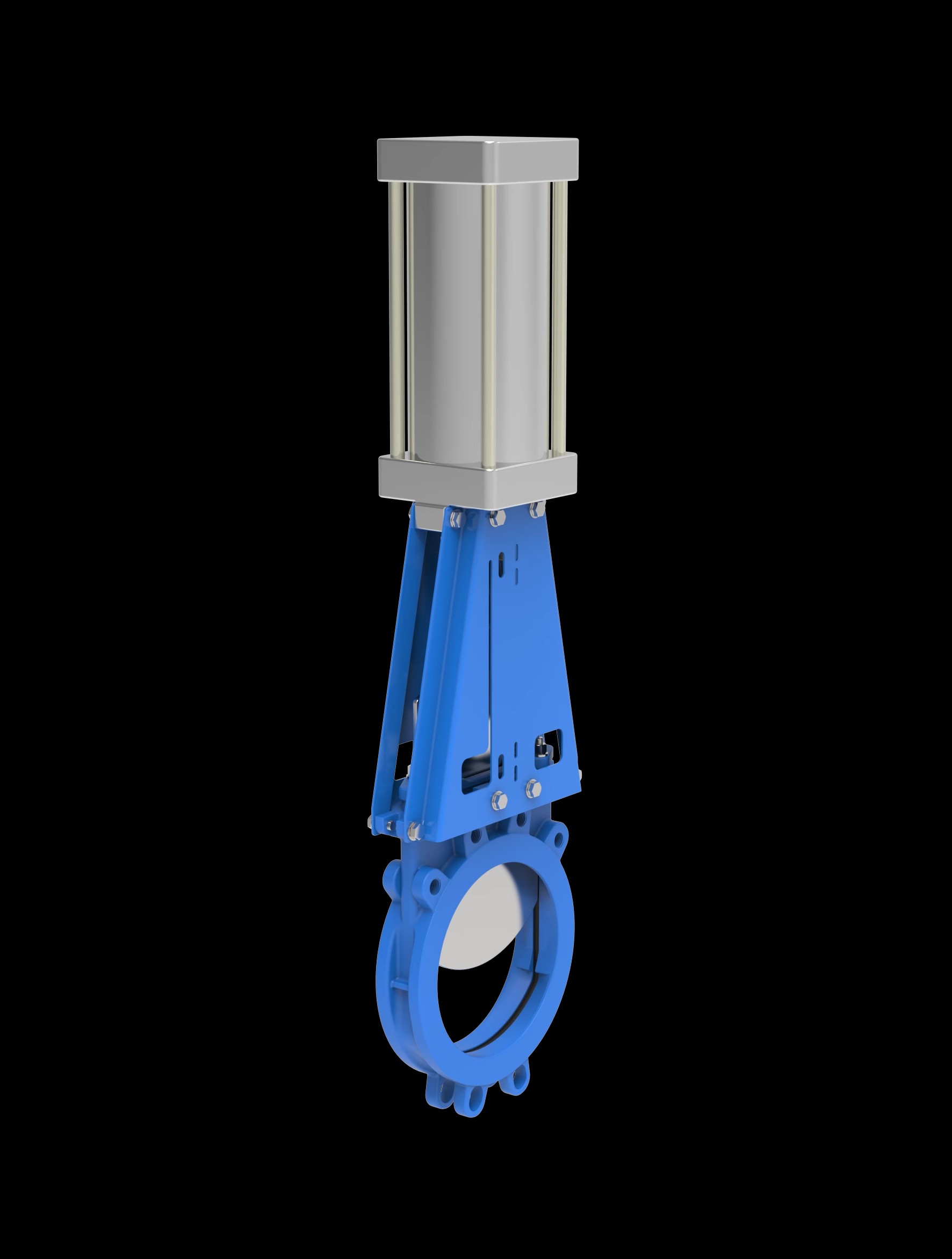
FAQs
What is a through conduit knife gate valve?
A through conduit knife gate valve is designed for full flow capability, allowing for easier cleaning and maintenance. This type of valve uses a blade that slices through the media, ensuring a tight seal when closed.
How do Townley knife gate valves differ from others?
Townley knife gate valves are known for their robust construction and ability to handle abrasive materials. They feature a unique design that enhances performance in harsh environments.
What are the characteristics of Trueline knife gate valves?
The Trueline knife gate valve typically offers features like low seating stress and high resistance to dead weight. This valve is ideal for applications requiring precise flow control with minimal leakage.
Why choose Tyco knife gate valves?
Tyco knife gate valves are recognized for their durability and efficient operation in diverse industrial settings. Their design includes features that minimize wear and improve lifespan, making them an excellent choice for heavy-duty usage.
What types of knife gate valves are available?
Various types of knife gate valves, including through conduit, short body, and mechanical joint styles, cater to different operational needs. Each type offers distinct advantages based on the application requirements.
What industries commonly use knife gate valves?
Knife gate valves find applications in industries such as mining, wastewater treatment, and pulp & paper manufacturing, where handling solids or slurries is essential.
How do I select the right type of knife gate valve for my needs?
Selecting the right knife gate valve involves considering factors such as material compatibility, pressure ratings, and operational conditions. Assessing specific application requirements will guide you to an appropriate choice.

